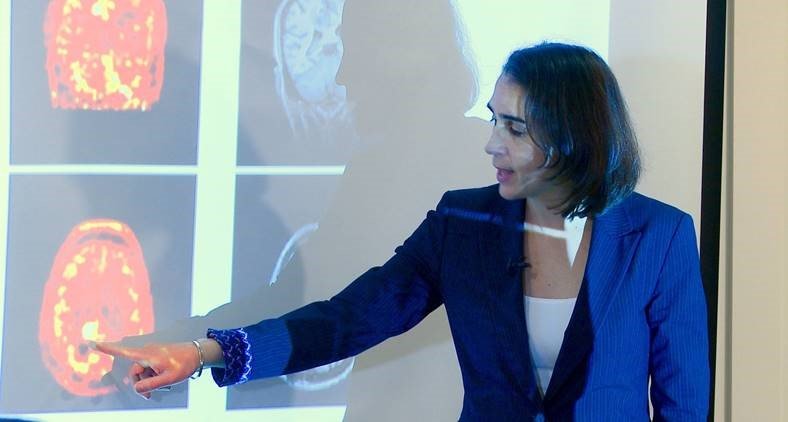The 2023 Miles for Mary Research Seminar will be held on November 6, 2023. This Seminar benefits Brain Cancer Research at the Massachusetts General Hospital Cancer Center. Dr. Elizabeth Gerstner, neuro-oncologist at the Mass General Cancer Center will explain recent developments in treatment of brain tumors, especially glioblastoma.
Massachusetts General Hospital, as part of the Dana-Farber Harvard Cancer Center, has been selected as one of five sites nationally to participate in the Glioma Therapeutics Network (GTN) funded by the NIH to focus on new treatments for Glioblastoma.
Although it is unfortunately true that, to date, all large trials of immunotherapy treatments of glioblastoma have been negative, despite success for other cancers that have spread to the brain (for example, metastatic melanoma), researchers resolutely continue to search for better treatments. Multiple clinical trials are being conducted in hospitals around the world and a comprehensive listing of that work can be found at the National Brain Tumor Society website. During the research seminar, Dr. Gerstner will highlight some of the promising novel approaches being explored in clinical trials.



